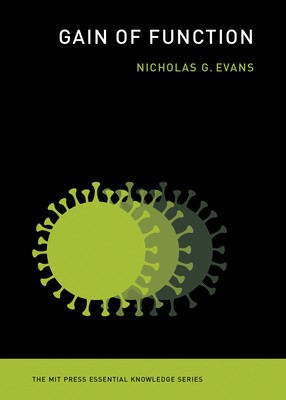
- We will send in 10–14 business days.
- Author: Nicholas G Evans
- Publisher: MIT Press
- ISBN-10: 0262551357
- ISBN-13: 9780262551359
- Format: 13 x 17.8 x 1.7 cm, minkšti viršeliai
- Language: English
- SAVE -10% with code: EXTRA
Reviews
Description
How a small number of risky experiments creates many unwieldy problems for life science research.The life sciences have never been more critical to human health, wealth, and security. But with any endeavor comes risk, and the last decade has seen concerns raised about gain-of function-research in which a microbe, usually a virus, is given new properties like enhanced lethality, transmissibility, or the capability to infect new species. In 2021 the term seeped into the tabloids when a conflict between Senator Rand Paul and Dr. Anthony Fauci arose over the origins of COVID-19. In Gain of Function, Nicholas Evans--who has spent his career studying gain-of-function research--describes what this kind of research is, what it isn't, and why a small number of scientific experiments continues to make headlines. Evans begins with a description of what gain-of-function research is in science, and what it means in government policy. He tells the story of the original papers that sparked controversy more than a decade ago, unpacking them for readers unfamiliar with virology research, and he identifies where and why policymakers and scientists alike became concerned. He then turns to the history of policies that attempt to regulate gain-of-function research, the current controversies, and the ethics of risky research. He concludes with the future of gain of function, including how debates about gain of function will influence science and public health in years to come.
EXTRA 10 % discount with code: EXTRA
The promotion ends in 21d.06:47:38
The discount code is valid when purchasing from 10 €. Discounts do not stack.
- Author: Nicholas G Evans
- Publisher: MIT Press
- ISBN-10: 0262551357
- ISBN-13: 9780262551359
- Format: 13 x 17.8 x 1.7 cm, minkšti viršeliai
- Language: English English
The life sciences have never been more critical to human health, wealth, and security. But with any endeavor comes risk, and the last decade has seen concerns raised about gain-of function-research in which a microbe, usually a virus, is given new properties like enhanced lethality, transmissibility, or the capability to infect new species. In 2021 the term seeped into the tabloids when a conflict between Senator Rand Paul and Dr. Anthony Fauci arose over the origins of COVID-19. In Gain of Function, Nicholas Evans--who has spent his career studying gain-of-function research--describes what this kind of research is, what it isn't, and why a small number of scientific experiments continues to make headlines. Evans begins with a description of what gain-of-function research is in science, and what it means in government policy. He tells the story of the original papers that sparked controversy more than a decade ago, unpacking them for readers unfamiliar with virology research, and he identifies where and why policymakers and scientists alike became concerned. He then turns to the history of policies that attempt to regulate gain-of-function research, the current controversies, and the ethics of risky research. He concludes with the future of gain of function, including how debates about gain of function will influence science and public health in years to come.


Reviews